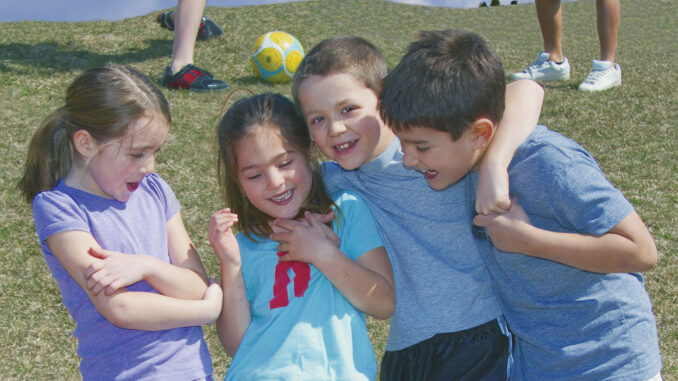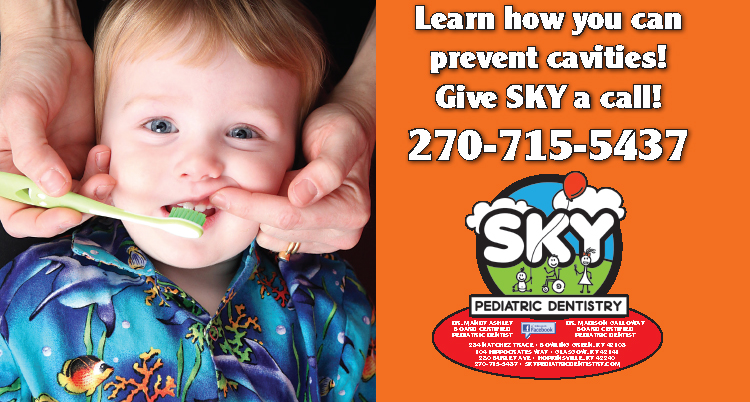
Imagine a beautiful, sunny day. The whole family is at a waterpark, having fun and enjoying the summertime break from school and work. The kids are splashing and taking turns on the waterslides. Everything is perfect until a tooth comes flying out of someone’s mouth.
What can you do to help your child? It helps to have a game plan! Knocking out a permanent tooth is a serious dental injury but there are ways for parents to increase the chances of a good outcome. First of all, try to determine if it is a baby tooth or a permanent tooth. Most kids have permanent front teeth by the time they are seven or eight years old. If it is a baby tooth, the American Academy of Pediatric Dentists does not recommend re-inserting the tooth. Due to the risk of damage to the permanent tooth forming underneath, it is best to leave the baby tooth out of the mouth and get it ready for the Tooth Fairy.
However, if it is a permanent tooth, hold the tooth by the crown-area (not the root) and if possible, press the tooth back into the socket that it came out of. If it is not possible or safe to re-plant the permanent tooth in your child’s mouth, you can store it in cold milk. Place the tooth in a plastic baggie of milk and keep this baggie cold but not frozen. It is important to follow up with your child’s dentist, ideally as soon as possible, to have the best chance of long-term survival of the re-implanted tooth.
On another note, toddlers are curious explorers and are developing their motor coordination at the same time, leaving them prone to falls. Front baby teeth can be chipped, knocked in (intruded) or knocked out (extruded or avulsed). Sometimes chips can be repaired with tooth-colored dental fillings or white crowns or the edge of the tooth can be sanded smooth. Baby teeth that are knocked in from a fall can sometimes re-erupt into the mouth and heal normally. But injured baby teeth also run a risk for infection and damage to the underlying permanent tooth, so it is important to follow up with your child’s dentist after a tooth injury. Some baby teeth turn yellow, dark gray or brown after an injury and may need treatment to prevent further damage. Your child’s dentist can help you monitor injured baby teeth and make plans for treatment if needed.
If your child is one of the 30 million kids in the US that participate in organized sports, you may want to consider getting him or her a mouth guard. According to the American Dental Association, children are most likely to have a sports-related dental injury between the ages of seven and 11. There are many different types of mouth guards ranging from “over-the-counter ready-to-use” to “boil-and-bite” to “custom-made” versions. Mouth guards protect not only the teeth but also the lips and jaws. They work primarily by absorbing the energy from a hit or impact and dissipating the remaining energy. You can talk with your child’s dentist about the best type of mouth guard for their teeth and their sport interests.
Your child’s dentist can help you come up with a plan to prevent dental injuries and to treat the injuries that do occur. It can be scary for parents to take action when there is an injury to a child’s mouth, but knowing what to do can help!
•The first step should be to assess if there is any other injury to a child’s head, neck or body that might warrant further evaluation by a physician.
•The next step is to call your child’s dentist to make a plan for follow-up dental care for the injured tooth or teeth.
•If a permanent tooth has been knocked out, this is an urgent dental emergency. Replace the tooth in the socket if possible, and if not, store the tooth in cold milk. Follow up with your child’s dentist as soon as possible.
-by Dr. Mandy Ashley
About Our Dentists: Dr. Mandy Ashley and Dr. Madison Galloway are Board Certified Pediatric Dentists proud to serve the communities of Bowling Green, Hopkinsville, and Glasgow! We look forward to sharing our vision of excellent comprehensive dental care that is fun for children and people with special healthcare needs with your family.
SKY Pediatric Dentistry has been providing dental care to children and adults with special needs since 2013. As board-certified specialists in dentistry for children, our team strives to make going to the dentist as fun as possible while maintaining high-quality treatment and preventative measures. We tailor treatment plans to each child and offer a wide range of treatment options, including sedation, in-office general anesthesia, and also hospital-based dentistry. With over 25 YEARS of doctor experience, SKY Pediatric Dentistry is a great choice for children’s dental care in Bowling Green, Hopkinsville, and Glasgow!



Be the first to comment